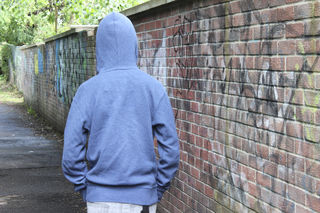Should Children Register as Sex Offenders?
Should Children Register as Sex Offenders?
A study of six states looks at whether registering children reduces abuse.

Source: iStock
This is a guest post written by Geoff Kahn, MSPH, Department of Mental Health at the Johns Hopkins Bloomberg School of Public Health.
Most people are at least passingly familiar with the concept of sex offender registration and notification (SORN) and the impetus for it. Individuals convicted of sex offenses must regularly provide their addresses and other personal information to police, who then make this information available to the public, often through searchable websites. But people may or may not be aware that these registration requirements extend to children as well as adults.
In 2006 the Adam Walsh Child Protection and Safety Act, named to honor the memory of a boy who was abducted and murdered, was passed which, among other provisions, laid out requirements for the registration of children who committed sexual offenses. States who failed to comply faced cuts to their funding.
It’s now 2017, and fewer than half of all U.S. states are in compliance with the SORN requirements of the Adam Walsh Act for various reasons. For large states, the financial cost of significantly expanding the registry would be greater than the federal funding they would lose. There is also a fear that registries will become overloaded with offenders who have been charged with minor offenses like streaking or “sexting” and who are not likely to re-offend while the more dangerous offenders will be lost in the crowd. Some states have expressed a preference for offender risk assessment-based registration requirements, rather than the blanket requirements demanded by the Adam Walsh Act. Finally, the public notification requirements of the Act conflict with many states’ laws that keep juvenile criminal records sealed, and states have opted to protect children’s privacy.
Researchers at the Moore Center for the Prevention of Child Sexual Abuse at the Johns Hopkins Bloomberg School of Public Health along with collaborators from the Office of Performance Measurement and Evaluation in New York recently examined juvenile justice data from six states — Idaho, South Carolina, Utah, Virginia, Maryland and Oregon — which have complied with the Adam Walsh Act SORN requirements and evaluated whether the new SORN laws have reduced sexual offending among juveniles. An analysis was conducted to see if the average number of offenses per month was different after the implementation of SORN compared to before. Each state had at least 48 months (4 years) of pre- and post-SORN data. Select non-sex offenses, including assault and theft, were analyzed as controls.
The results from all six states were the same: there was no significant difference in the monthly number of juvenile sex offenses after the implementation of SORN, and there were no significant trends in control offenses either, suggesting that SORN laws have had no effect on patterns of juvenile sexual offending. This study joins the mounting evidence that registering children as sex offenders is ineffective and it supports research that finds it may be harmful as well.
Everyone wants to protect children from abuse, but the vast preponderance of evidence to date shows that forcing children to register as sex offenders alongside adults does nothing to improve public safety or prevent first-time offenses. Rather, focusing resources on preventing children from committing sexual offenses would do more to reduce victimization and make communities safer.

